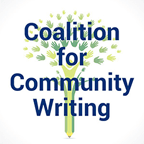Document Type
Article
Abstract
Organizations like the John Reed Clubs and the WPA Federal Writers’ Project, as well as publications like The New Masses can be seen as “literacy sponsors” of the U.S. literary left in the 1930s, particularly the young, the working class, and African American writers. The vibrant, inclusionary, activist, literary culture of that era reflected a surge of revolutionary ideas and activity that seized the imagination of a generation of writers and artists, including rhetoricians like Kenneth Burke. Here I argue that this history has relevance for contemporary community writing projects, which collectively lack the political cohesiveness and power of the national and international movements that sponsored the 1930s literary left but may anticipate another global period of struggle for democracy in which writers and artists can play a significant role.
Recommended Citation
Mutnick, Deborah. “Write. Persist. Struggle: Sponsors of Writing and Workers’ Education in the 1930s.” Community Literacy Journal, vol. 11, no. 1, 2016, pp. 10–21, doi:10.25148/clj.11.1.009245.

